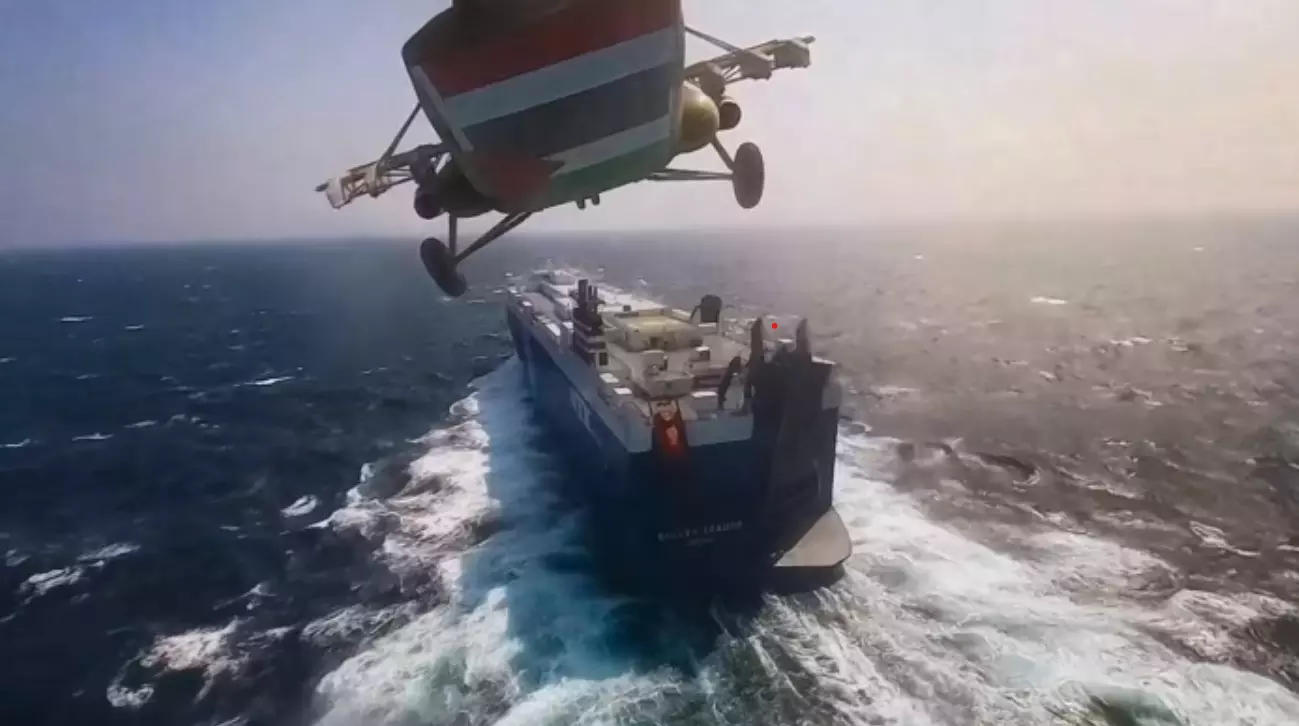Tumultuous waters

In the midst of an escalating conflict, the repercussions of violence and retaliation continue to reverberate, leaving no winners and only losers. The recent challenges faced by the United States and other nations in the Red Sea add a layer of complexity to an already volatile geopolitical landscape. As the US publicly supports Israel's offensive in Gaza, Iran-backed Houthi rebels, in retaliation, intensify attacks on merchant ships, jeopardising trade through the vital Suez Canal. This crisis has prompted major shipping companies to reroute trade through alternative paths, such as the Cape of Good Hope, in an attempt to avoid the volatile Red Sea region. However, this diversion comes at a significant cost, extending journey lengths by approximately 3,300 miles. The scale of the issue becomes apparent when considering the latest industry data reported by Bloomberg. Due to Houthi attacks, almost half of the container-ship fleet routinely navigating the Red Sea and Suez Canal is now opting to steer clear of this perilous route. According to Flexport Inc.'s compiled tally, 299 vessels, with a collective capacity of 4.3 million 20-foot containers, have either altered their course or plan to do so due to the heightened threat of attacks. This shift in maritime routes not only increases sailing time but also escalates costs, setting off a potential ripple effect on global prices. In a period where crude oil prices are already fluctuating due to OPEC+ cartel's production cuts, the Red Sea crisis adds a new layer of disruption. Elevated crude benchmarks could impact gas prices, while shipping companies may respond to longer journey times and heightened insurance costs by passing on the burden to consumers, potentially triggering a global inflationary spiral. It is crucial to recognise that this crisis doesn't merely pose a threat to the United States and other nations bordering the Red Sea. The implications extend globally, affecting a substantial part of the world. While the capacity of another major trade route, the Panama Canal, is already constrained by drought, the Red Sea crisis adds a new layer of complexity to global trade dynamics. At the heart of this crisis are the Houthi rebels, also known as Ansar Allah, a formidable militant group based in Yemen, particularly concentrated in the northern region. Armed with sophisticated war infrastructure and a well-equipped fighting unit, they have been targeting ships in the region since October. Initially focused on Israeli ships, their attacks have broadened to include almost any vessel passing through the area. To address this escalating threat, the United States has taken the lead in a mission to neutralise the persistent Houthi attacks through Operation Prosperity Guardian (OPG). This US Navy-led coalition seeks to ensure the safe navigation of international shipping through the Red Sea. Under OPG, the US has formed a maritime task force with the cooperation of 20 countries. However, the efficacy and viability of Operation Prosperity Guardian raise critical questions. Notably, three NATO allies—France, Italy, and Spain—have declined to participate in the operation. Moreover, some Middle East allies of the US exhibit reluctance to align themselves with this initiative. European nations may fear retaliation from the Houthi rebels, while Middle Eastern countries might be hesitant due to perceived alignment against Gaza's plight in the Israel-Hamas conflict. Public opinion critical of Israeli hostilities further complicates the geopolitical landscape for these nations. To sum up, the Red Sea crisis is a call for urgent multilateral cooperation. The impact of this conflict extends far beyond the immediate region, affecting global trade, energy prices, and geopolitical alliances. The success of Operation Prosperity Guardian hinges not only on military strategies but also on navigating the complex web of international relations, addressing concerns, and fostering collaboration to ensure the safety and stability of vital maritime routes. India has always been seen as a dominant player in the Indian Ocean region. Apart from ensuring its own safety, India should also assume an active role to ensure global economic stability.



